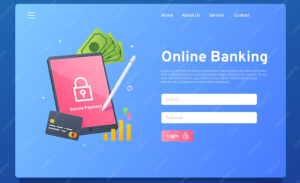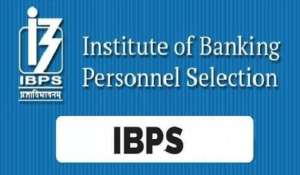Considering the launch of a digital bank, neobank, or e-wallet? This guide lays out a comprehensive roadmap, detailing the essential steps to materialize your vision into a thriving business endeavor.

Crafting a Business Model
Initiating your fintech journey demands a robust business plan as the foundational step. This living document acts as your strategic compass, delineating tasks crucial for both immediate and long-term success. Moreover, a well-structured business plan is instrumental in securing funding from investors and navigating the labyrinth of regulatory requirements.
Devoid of a clear strategic vision and execution plan, the risk of your business idea floundering amplifies. Your business plan must be easily digestible for investors, regulators, and stakeholders, elucidating your target markets, intended customer base, solutions, and distinctive value propositions. It should also include financial forecasts spanning at least three years.
Company Formation and Office Setup
- Depending on the jurisdiction, company registration as a legal entity and office establishment might precede license application. While some regulators mandate only reserving a company name, many necessitate a physical office with local staff. This physical presence serves as tangible evidence of your commitment to conducting business seriously, a pivotal factor in garnering regulatory approval.
Obtaining Licensing and Regulation
Securing the requisite licenses or becoming an EMD/PSD Agent of a licensed entity is the subsequent critical stride. Defining your business’s regulatory management approach is imperative. While some startups opt for operating under partner licenses, others pursue licenses independently.
For launching a digital bank or e-wallet in the EEA/UK, acquiring e-money or payment licenses stands as the preferred route. The process varies by regulator, spanning 5 to 12 months or longer. Steps entail introduction to the regulator, document preparation and submission, team formation, business account opening, initial capital payment, and authorization. EEA-based companies may also seek passporting to operate in other EEA countries.
An alternative approach to kickstarting your digital bank or e-wallet is securing an MSB registration in Canada. This avenue offers distinct advantages over EEA-UK licenses:
- Enhanced Service Offerings: MSB registration in Canada enables a broader spectrum of services, including activities involving cryptocurrencies, often restricted under EEA-UK licenses.
- Expedited License Acquisition: Compared to various jurisdictions, including EEA-UK, obtaining an MSB registration in Canada typically entails a swifter licensing process, facilitating quicker venture launch.
- Diverse Client Base: With an MSB registration, you can cater to a diverse client portfolio across industries, geographies, and risk levels, fostering ample growth opportunities.
- Lower Initial Investments: Launching your digital bank or e-wallet with an MSB registration in Canada requires lower initial investments compared to pursuing licenses in the EEA-UK region, rendering it a more cost-effective option for startups.
IT System Preparation and Choosing the Right Core Banking System or E-Wallet Software
Establishing your IT infrastructure marks another pivotal phase in launching your digital bank. A crystalline vision of your platform, whether internally developed or procured from a vendor, is indispensable. Regulators often mandate a fully operational IT system, core banking, or e-wallet system by license issuance, with some providing a grace period for implementation and auditing.
Firstly, let’s delineate core banking or e-wallet software. It encompasses a suite of applications empowering financial institutions to manage diverse banking operations, from account management to transaction processing and reporting. Fintech enterprises are embracing modern core banking software to bolster operations and vie effectively with traditional banks.
So, what facets should you ponder while selecting a core banking solution or e-wallet software?
Automation:
Efficiency reigns supreme, and your core banking software must streamline and automate processes like transaction processing and IBAN generation. This automation curtails errors, amplifies efficiency, and liberates resources for strategic initiatives.
Analytics:
Real-time data and analytics serve as bedrock for informed decision-making. Seek software furnishing insights into transaction volumes, customer behavior patterns, and fraud detection to fine-tune services and mitigate risks adeptly.
Integrations:
Seamless integration with third-party providers emerges as a linchpin for fintech companies. Whether pertaining to payments, card issuance, or KYC verification, your core banking software should meld seamlessly with external services, ensuring a unified user experience and minimizing security vulnerabilities.
Scalability:
As your fintech venture burgeons, your software must scale proportionately. It should accommodate augmented transaction volumes, vast data storage, and evolving business requisites seamlessly.
Security:
Given the sensitive nature of financial data, robust security features are indispensable. Your core banking software ought to conform to the highest security standards, encompassing encryption, multi-factor authentication, and periodic security audits.
Usability:
User-friendly interfaces are pivotal for both staff and clientele. Whether navigating mobile banking apps or configuring back-office operations, your software should proffer intuitive usability across all platforms and devices.
Customization:
Tailoring software to align with specific requisites is imperative. However, customization can be intricate and costly, necessitating alignment of your needs with feasible and cost-effective solutions.
Regulatory Compliance:
Adherence to regulatory mandates is paramount. Ensure your core banking software complies with data privacy laws, anti-money laundering regulations, and consumer protection laws, mitigating the risk of penalties and reputational harm.
Built-in Accounting:
A comprehensive accounting system is indispensable for financial tracking and reporting. Verify that your software encompasses a robust general ledger compliant with international financial reporting standards.
Costs:
Finally, contemplate the comprehensive costs, spanning setup fees, monthly maintenance, integration costs, and software updates. Opt for a solution aligning with your budget while efficaciously catering to your business needs.
Business Infrastructure Development
Post-licensure and equipped with a functional IT system, focus transitions to fortifying your business infrastructure and forging partnerships. This encompasses opening business and safeguarding accounts with banks and BaaS providers, acquiring BIC numbers through SWIFT for IBAN issuance, and collaborating with service providers for automation, functionality, and features.
In conclusion, launching a digital bank, neobank, or e-wallet mandates meticulous planning, precise execution, and adherence to regulatory precepts. By adhering to this roadmap, you can deftly navigate the intricacies of initiating a fintech venture and transmute your vision into a flourishing reality.





